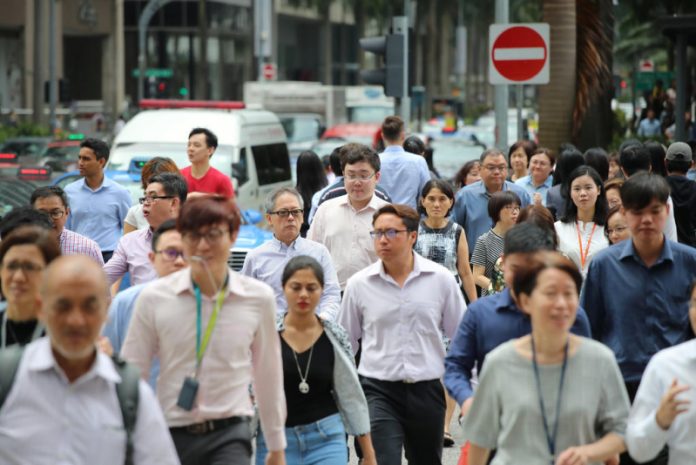Following civil service ‘restraint’, private sector also likely to see lower bonuses: Analysts
Private sector employees are likely to receive lower annual bonuses in the current financial year compared to the previous year due to the headwinds that have buffeted the economy.
According to human resource analysts CNA spoke to, full-year bonuses among private sector companies should lie between 1.5 months and 2.3 months of salary.
On Monday, the Public Service Division said it “will exercise restraint” for bonus payments this year due to “prevailing economic uncertainties”. Most civil servants will receive a full-year bonus of 1.55 months – excluding the lump sum payments – the lowest since 2009. That year, amid the global financial crisis, civil servants received a 13th month bonus and a one-off payment of 0.25 month, capped at S$750.
Associate Client Partner at Korn Ferry Singapore Kartikey Singh said that based on their calculations, the average bonus payout for the 2019 financial year that ended in March (FY2019) was 1.9 months of salary. This sum was around 15 per cent less than that paid out in FY2018, owing to the economic headwinds and trade tensions. This year has continued to be tough and bonuses for FY2020 will likely fall below 1.9 months, Mr Singh said.
In November, the Ministry of Trade and Industry (MTI) announced that Singapore’s economy is expected to grow by 0.5 per cent to 1 per cent in 2019. Issues that range from Brexit to US-China trade tensions continue to weigh on Singapore’s growth outlook.
On which sectors would likely pay poorly this year, founder of NeXT Career Consulting Group Paul Heng said that retail players would likely push out smaller bonuses, while Na Boon Chong, managing director and partner at Aon Singapore added manufacturing to the list. Both sectors contracted in the first three quarters of 2019, according to data from MTI.
BETTER BONUSES FOR THOSE IN TECH, BANKING
Even though they were hit by the slowing global economy, the experts said that financial services companies are likely to offer above average bonuses, while demand for talent means employees in the technology space stand to pocket better payouts. “While competing for scarce talent is more a base salary issue, some employers would use a higher bonus target to make the total compensation attractive,” said Mr Na.
Though the public sector bonus announcement might be taken into consideration and cause the private sector to be more prudent with their payouts, bonuses still fundamentally depend on an individual company’s performance, the analysts said. Bonuses in the private sector are typically based on financial benchmarks such as return on equity, total shareholder returns, and earnings before interest, tax, depreciation and amortisation (EBITDA), said Godelieve van Dooren, a partner at Mercer.
Some organisations are also shifting from setting individual targets to rewarding based on team performances “in order to drive higher levels of collaboration and engagement”, she added.
The analysts agreed that those working in multinational corporations (MNCs) will probably get higher disbursements compared to small and medium enterprises (SMEs). The latter tend not to have formal policies on bonuses, and it is up to the company owners’ discretion to grant them. “SMEs generally run a tighter shop, and given that cash will always be king, they are likely to be cautious and preserve cash reserves,” said NeXT’s Mr Heng. Association of Small and Medium Enterprises’ vice-president of membership and training Ang Yuit agreed. Some SMEs will not offer bonuses, he said, while most would issues modest bonuses this year. However, SMEs provide greater job stability even during rough times, he added. “We will try to keep our workers but spend less on bonus(es).”
Source: cna/rp





















